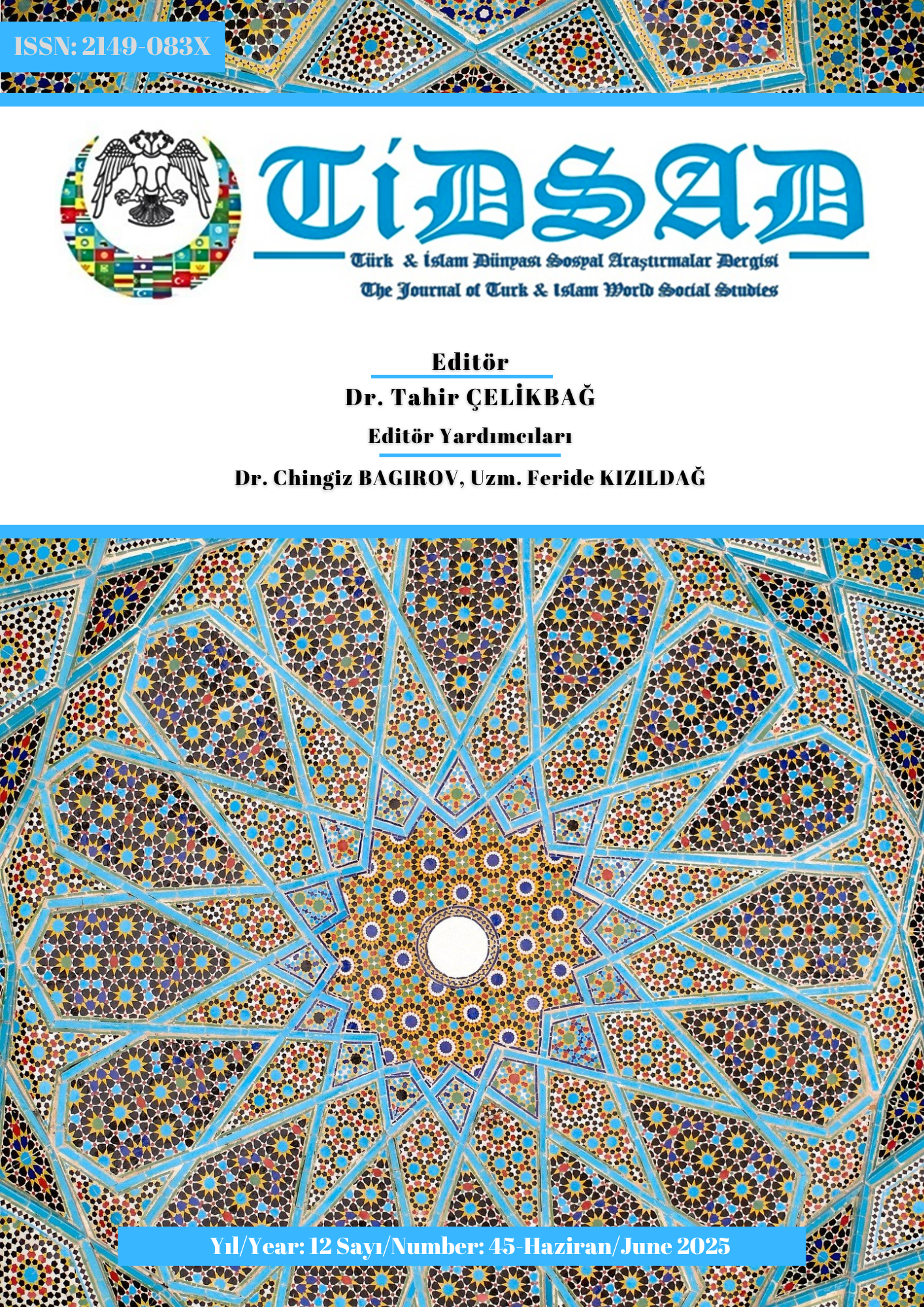Author :
Abstract
Doğuşundan itibaren modern Mısır romanının toplumla kurduğu ilişki iki yönlü olarak devam etmiş, toplumsal olguları sorunsallaştıran roman, yazarın ideolojik perspektifinden süzülen kurgularda kamuoyu oluşturmayı sürdürmüştür. Romantik ve realist tüm eserlerde eleştiriyi az ya da çok amaç edinen roman XI. yüzyılın post modern, ütopik ve distopik örneklerinde de siyasi gündemi konu edinmiş, hızlı tüketim çağında ortaya çıkan son örnekleri de aynı misyonu yüklenmiştir. Mısır’da halihazırda kitapları en çok satanlar listesinde yer alan Eşref el- Aşmâvî, ana hikâyenin rahminden doğan hikâyelerle kurguladığı Seyyidetü’z-Zemâlek (Zemâlek Hanımefendisi; 2016) adlı romanında da tarihi fon olarak kullanmış, geçmişin tecrübesiyle bugüne dair farkındalık kazandırmayı başarmıştır. Savcı ve yargıç olarak edindiği tecrübenin kazanımlarıyla kaleme aldığı romanda, olayları bir nakış gibi işlediği görülür. Kullandığı çoklu bakış açısıyla mesleğinin gereği olan, gerçeğe ulaşma hassasiyetini gösterdiği gibi olayların neden ve niçinlerine de odaklanmıştır. Çalışma, yazarın edebi kişiliğini ele aldıktan sonra söz konusu eseri yapı ve içerik olarak incelemeyi hedeflemiştir. Çalışmada, yazarın romanlarında toplumsal olayları kurgularken genel yaklaşımının daha net anlaşılması ve motivasyon kaynağının daha iyi kavranabilmesi için muhtelif mecralarda vermiş olduğu güncel röportajlar da eserlerinin yanında ikincil başvuru kaynakları olarak değerlendirilmiştir. Eşref el-Aşmavi’nin kendi kişiliğinin yanı sıra Seyyidetü’z-Zemâlek adlı eseri ve bu eserdeki tarih yorumu genelden özele doğru mercek altına alınmıştır.
Keywords
Abstract
Since its birth, the relationship of the modern Egyptian novel with society has continued in two directions, the art of novel has been problematizing social phenomena and continued to form public opinion in fictions filtered through the author's ideological perspective. The novels, which aims to criticize more or less in all works whether romantic or realistic, has also taken the political agenda as its subject in the post-modern, utopic and dystopic examples of XI. century, the latest examples which were emerged in the age of rapid consumption have undertaken the same mission. Ashraf al-Ashmawi, whose books are already on the bestseller lists in Egypt, used history as a backdrop in his novel Sayyidet al-Zamâlek (The Lady of Zamâlek; 2016), which he fictionalized the stories that was born from the womb of the main story and succeeded in raising awareness of the present with the experience of the past. In the novel, which he wrote with the experience he gained as a prosecutor and judge, it is seen that he engraves the fiction in a perfect way. With the multiple perspectives he used, he focused on the reasons and causes of the events as well as showing the sensitivity to reach the truth, which is a requirement of his profession. The study aims to analyze the mentioned work in terms of structure and content after discussing the author's authorial personality. In the study, in order to understand more clearly the general approach of the author while fictionalizing social events in his novels and to comprehend his motivation in a better way, recent interviews he gave in various media were evaluated as secondary reference sources in addition to his own works. In addition to Ashraf al-Ashmawi's own personality, his work Sayyidat al-Zamālek and his interpretation of history in this work have been analyzed from the general to the specific.





